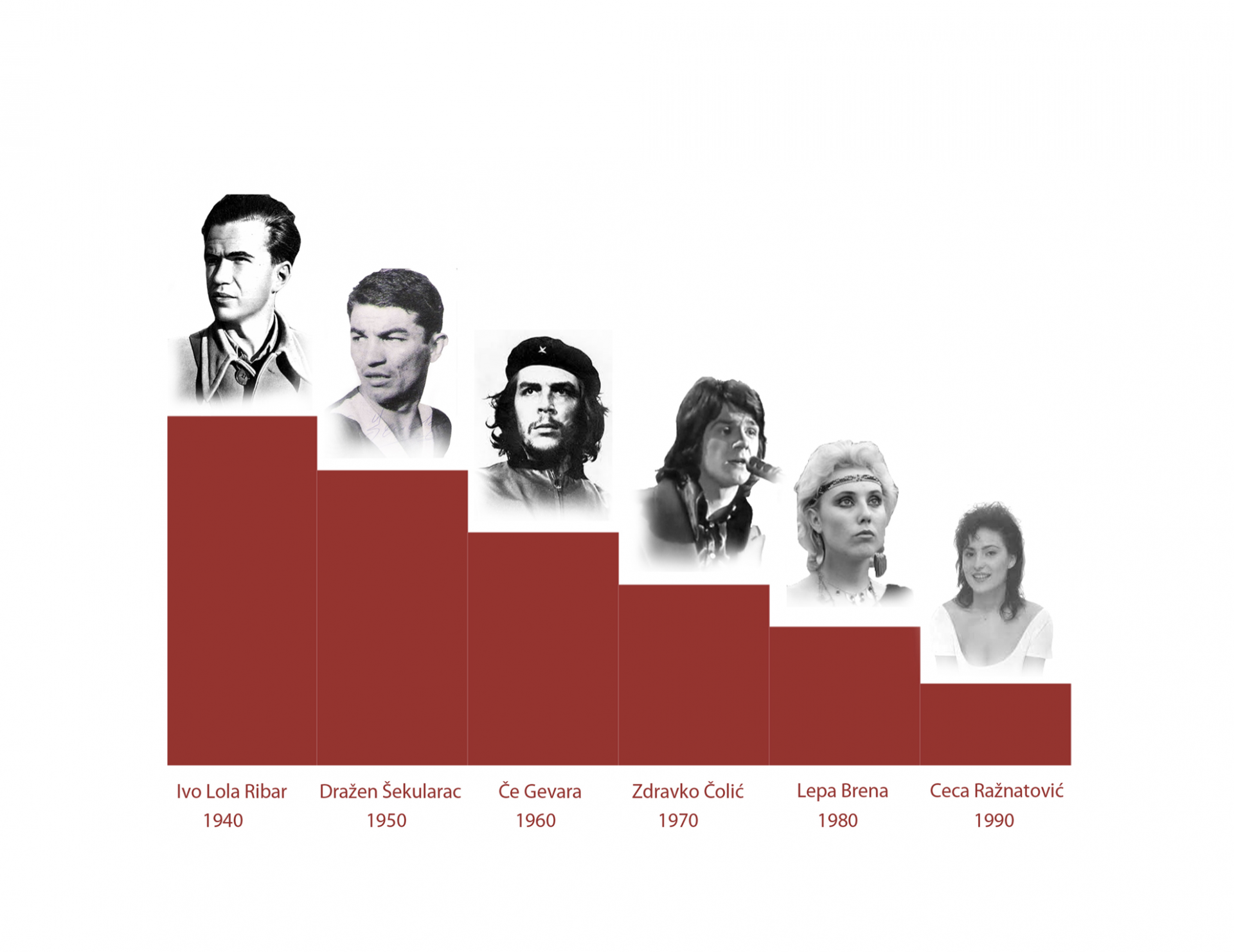
When it comes to establishing role models, schools are losing the battle with the media. Young athlete Emir Bekrić became the main topic of conversation when he won gold at the European Youth Championship in Tampere for the 400-meter hurdle, breaking the national record with a time of 48.76 seconds. Because of his young age, he is a relevant role model for this country’s youth, so we asked him who his own role models were growing up, and if he believes today’s system of values are distorted.
The most important thing that has followed my success is that kids are turning to sports and physical activities as a means of accomplishment in their lives. Young people are logical; they look for winners and people who have achieved results. They later analyze how their role models attained such results. They begin to imitate them, aspiring to reach the same heights of success. This is not unusual, this has always been the case no matter the time nor the place. If communities and the media promote the concept of partying and debauchery as indicators of success, or if those with the biggest bank accounts headline the news, then it’s logical to assume that young people will follow these examples. Unfortunately, the consequences of their decision to follow such examples are also apparent.
Emir agrees that the time has come for youth to change their role models: “If people like me, Đoković, mathematicians who win medals in world championships, programmers, and other honest people who earn their money through honest work get into media’s spotlight, then things will start to change.”
In recent years, the cultural awareness of BiH’s youth and citizens has decreased. Despite the fact that many towns situated inside our little bubble offer rich cultural events, young people are neither informed nor interested in such activities, as if they don’t even exist. Proof of the deterioration of our citizens’ cultural awareness is in the low attendance at quality events organized by national and state cultural institutions. These are some of the reasons why the life and spare time of our country’s youth are wasted, and their surplus energy is channeled in the wrong direction.
One conclusion that can be drawn from this sad state of affairs is that young people identify themselves with and respect those who they deem successful. They are supposed to identify with quality and accomplished people, as once was the case, but all of the sudden, the Bosnian cultural scene was thrown into anarchy, with rules established by a small percentage of an oligarchy who are inspired by lust, kitsch, and scandal.
Identification with role models and idols is an important part of the social and emotional development of children and youth. Healthy social intelligence must accept the criteria under which certain persons with whom there is any type of contact or direct interaction are to be considered role models, while idols should be those who stimulate awareness and are engaged in socially and generally beneficial existence. Under such conditions, children and youth should identify themselves with role models and imitate idols.
The scene in which elementary school graduates go to high school dressed as if they are going to the night club became the standard iconography within our educational institutions. Teachers in elementary school often joke that little girls pay more attention to the selection of their graduation dresses than to the selection of their actual high schools, but are right to take a more serious tone when speaking of the influence of youth’s idols on not only their wardrobe but on their life philosophy. It is a fact that young people often disregard what they are taught at home, and this shows once patriotism is measured in the number of beaten foreigners, burning torches, as well as when youth idols become people armed with ignorance.
It is a fact that, for generations, children’s idols have not changed. They are their parents, older siblings, cousins, family friends, or teachers. In the 1940s, a leading idol among youth was Ivo Lola Ribar, in the 50s it was Bobek and Šekularac, in the 60s it was Che Guevara, Đorđe Marijanović and the Beatles, in the 70s it was Zdravko Čolić and “Bijelo dugme”, in the 80s it was Lepa Brena, and in the 1990s their idols became Knele and Ceca.
Recent research done by the Department of Psychology on Faculty of Political Sciences in Banja Luka on the role models and idols of high school students in the Republika Srpska (RS) reveals some things that are not in accordance with Emir’s reasoning. The results show that the idols of almost half of the students are public figures, most of whom are from the entertainment, sports, culture, and political arenas. Around 2,500 students from 26 schools across the RS listed Svetlana Ražnatović, Jelena Karleuša, Isidora Bjelica, Ognjen Tadić, Zoran Đinđić, and Bill Gates as their idols.
Dragica Pavlović-Babić, psychologist and one of the authors of this study, says youth idols are those persons that are presented to them in media and those that their families hold in high regard and says, “Schools are losing the battle with these idols.” She adds that it should come as no surprise that girls ages 14-15 present themselves at their graduations as if they just wandered off of TV.
“If the schools view graduation as the cornerstone of the educational process that must be celebrated in a bar and where young people should stay until two in the morning, then there is no sense in complaining that girls wear clothes appropriate for bars and stages,” says our collocutor Dragica.
We then asked Dragica to comment on the results of the research. She responded: “If we take into account this broken system of values inside the family, school, and society as well as the social and economic class in which they grow up, how can we criticize the youth for their choice of idols? The first place will be reserved for idols from the entertainment industry (musicians, actors, TV personas). The second for athletes. These will be followed by politicians, then artists, then scientists, and last, the national heroes. When compared to similar research undertaken in Serbia in 1994 and 2000, significant changes in idol preferences have been observed. There are a lot more idols from the world of sports and entertainment and fewer politicians, which isn’t all bad. However, there are far fewer artists and scientists, which, you must admit, is troubling.”
What are the values that are hidden behind idols presented by our media? Is it success, luxury, fame, fortune, power? Once upon a time, the main reasons behind a high school student’s admiration were strong personalities (creativity, perseverance, resilience), humanity (goodness, fairness, love, tolerance) and intellectual ability (intelligence, knowledge, wisdom), whereas prestige (power, fame, riches) was much less important. Based on these changes to the idolatry hierarchy among youth, we can detect changes in their value system, and these changes are, in turn, a result of deeper social oscillations, turmoil, and idealizations.
This publication has been selected as part of the Srđan Aleksić Youth Competition, a regional storytelling competition that challenges youth to actively engage with their own communities to discover, document, and share stories of moral courage, interethnic cooperation, and positive social change. The competition is a primary component of the Post-Conflict Research Center’s award-winning Ordinary Heroes Peacebuilding Program, which utilizes international stories of rescuer behavior and moral courage to promote interethnic understanding and peace among the citizens of the Western Balkans.
The Balkan Diskurs Youth Correspondent Program is made possible by funding from the Robert Bosch Stiftung and the National Endowment for Democracy (NED).







